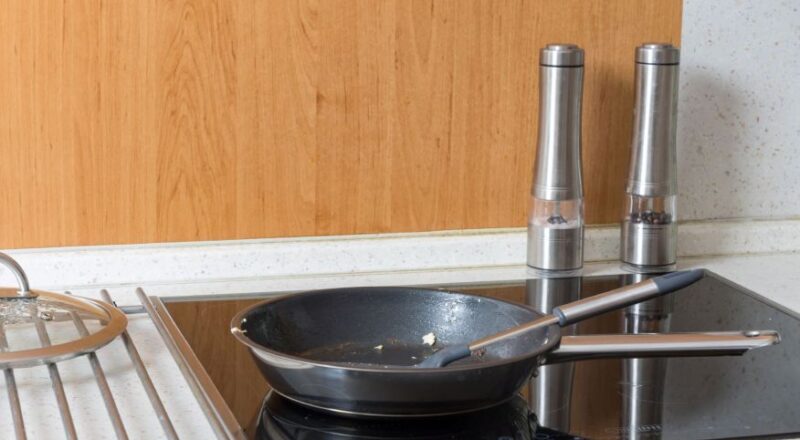If you’ve ever experienced a buzzing noise when using your cast iron cookware on an induction cooktop, you’re not alone. This peculiar sound can be quite puzzling, especially for kitchen professionals who rely on precision and consistency in their cooking. In this article, we will explore the reasons behind this phenomenon and offer practical solutions to help you maintain a peaceful cooking environment.

Understanding Induction Cooking
To comprehend why your cast iron might be making a noise, it’s essential to understand how induction cooking works. Unlike traditional gas or electric stoves, induction cooktops use electromagnetic fields to heat pots and pans directly. This method is efficient and offers precise temperature control, making it a favorite among chefs.
Why Does Cast Iron Buzz?
The Role of Electromagnetic Fields
Induction cooktops generate electromagnetic fields that cause the metal in your cookware to vibrate. This vibration is usually subtle and inaudible, but with some materials, like cast iron, it can become noticeable.
Material Characteristics
Cast iron is dense and heavy, which means it can amplify the vibrations created by the cooktop. The buzzing noise is essentially a result of these vibrations being transferred through the cast iron material.
Cookware Size and Thickness
The size and thickness of your cast iron cookware can also contribute to the noise. Larger and thicker pans may vibrate more prominently, producing a louder buzz.
How to Minimize the Buzzing Noise
Check Cookware Compatibility
Ensure your cast iron is induction-compatible. Some cast iron pans are specially designed for use on induction cooktops and may have a smoother bottom surface that reduces noise. For more tips on avoiding scratches with cast iron, you can visit this guide.
Use a Cooking Mat
Placing a silicone or fabric mat between the cooktop and your cast iron can dampen the vibrations and reduce noise. This simple solution can make a significant difference.
Adjust Heat Settings
Sometimes, lowering the heat setting on your induction cooktop can reduce the buzzing sound. Experiment with different settings to find the optimal balance between noise and cooking performance.
The Impact of Cookware Design
Flat vs. Textured Bottoms
Cookware with a flat bottom tends to produce less noise than those with textured surfaces. If noise is a concern, consider investing in cast iron with a smooth bottom.
Weight Distribution
The weight distribution of your cast iron can also affect noise levels. Evenly distributed weight helps minimize vibrations and noise.
Maintaining Your Cast Iron Cookware
Regular Maintenance
Maintaining your cast iron cookware is essential not only for noise reduction but also for longevity. Regularly seasoning and cleaning your cast iron ensures optimal performance. Check out this guide on searing meat in cast iron for more tips.
Inspect for Damage
Inspect your cookware for any signs of damage, such as cracks or chips, which can exacerbate the buzzing noise and impact performance.
Exploring Alternative Cookware
If the buzzing noise becomes too bothersome, you might consider exploring alternative cookware options. Stainless steel or copper-bottom pans can offer similar cooking performance without the noise issues associated with cast iron.
Conclusion
While the buzzing noise from cast iron on an induction cooktop can be an annoyance, understanding the underlying causes and implementing the solutions outlined above can help minimize it. Remember, the key is to ensure compatible cookware and adjust your cooking techniques as needed. For further insights on induction cooking and cast iron, you can explore this external resource.

FAQ
Why does my cast iron make noise on induction?
The noise is due to the electromagnetic fields from the induction cooktop causing the dense cast iron to vibrate.
Can I stop the noise completely?
While it may not be possible to eliminate the noise entirely, using compatible cookware and damping mats can significantly reduce it.
Is buzzing noise harmful to my cookware?
The noise itself is not harmful, but it may indicate that your cookware is not optimally suited for induction. Regular maintenance and inspection are recommended.
This article contains affiliate links. We may earn a commission at no extra cost to you.

